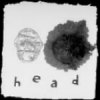 Head to Head:
Head to Head:
an interview with David Lynch
By Brett Wood
film historian in College Park, Georgia
Art Papers (FOCUS ON ART AND FILM), 22/5 Sept.Oct 1998
Brett Wood: Do you feel your work responds to or is shaped by the social climate of its time, or is it relatively free of political and pop-cultural influence?
David Lynch: It has to be shaped some by the time, but it's not political.
Why is the head such a subject of fascination and horror for you?
The whole human body is filled with mysteries.
How does the passive act of meditation influence the active process of painting?
Meditation expands consciousness and makes it possible to catch bigger ideas-sometimes.
Why do you resist naturalistic color in painting and photography?
It's a personal preference. I like organic earth colors.
Do you dream in color or black and white?
Full color.
Do your dreams more closely resemble your artwork or your life?
They don't relate to either one, with a few exceptions.
What are some of the things that have inspired you in the lives and works of such acknowledged influences as Ray and Charles Eames, Francis Bacon, the Wright family, Mark Rothko, etc.?
Once in awhile we see or hear something that strikes a beautiful chord within us. These things reverberate around us. These artists you mentioned and some others have done this to me.
Why did you become a filmmaker instead of continuing your pursuits as a painter? Do you think it's easier to establish one's self as a filmmaker or a painter/photographer?
Because I wanted the paintings to make sound and move and that led to film. Fate sometimes smiles on everyone.
Do you feel you express yourself better when constructing a formal narrative (i.e., making films) or creating non-narrative and in some cases non-representational images?
They're two different things and the mind can get into each one.
How does the creative process differ when directing a group of actors and technical collaborators as opposed to working alone in a studio?
Alone only one person has to tune in. With a group you have to talk and act and react until everyone tunes into the same things as close as possible.
In what period of history do you most wish you could live (or feel you belong)?
I like the present.
Is a painting already frozen in your mind when you approach the canvas or does it evolve before you?
I have to have an idea to get started, but that is only a point of departure and it evolves from there.
Is it difficult to settle upon an exact moment at which to freeze an image and walk away?
Sometimes, but mostly the thing tells you when it's done.
Do you feel your work expresses a common idea or theme?
I don't think about themes.
In works such as The Eight Quarters and your earlier paintings, which come first, the titles or the images?
The images.
Could you elaborate on why and when the text is integrated into the pieces?
Sometime during the process the abstractions conjure up words.
Do you see the science of medicine as a symbol of hope or a reminder of impending doom?
Both, plus a celebration of organic phenomenon.
Do you feel the lack of sound (or smell) hinders the expressiveness of your artwork?
People have sometimes said my paintings stink.
How are the works you're creating now different from or similar to those you created in art school?
Just a continuation-hopefully in an upward direction.
Have you revisited the mechanized paintings and sculptures of your early years or has filmmaking satisfied this urge for action/reaction?
I think sometimes I revisit them.
Is creation a cathartic process or constructive one? In other words, do you rid yourself of something or gain something with each work?
You gain something with each work.
Do you feel being a well-known filmmaker has aided or hindered your critical status as an artist?
Hindered it.
Are there other contemporary artists with whom you feel a kinship or whose work you admire?
Don Van Vliet, [Georg] Baselitz, [Julian] Schnabel, [Francesco] Clemente and many others.
Are you more productive when at peace with your surroundings or when under physical and psychological stress?
Both, but I think you have to be somewhat happy to be able to create. If there are too many problems going on, it blocks the flow.
Where is Philadelphia really located?
On a border between Purgatory and Hell.
Brett Wood is a film historian in College Park, Georgia. He recently edited Mayhem, Motherhood & Madness: Three Screenplays from the Exploitation Cinema of Dwain Esper (Scarecrow Press).

Prints | Paintings & Drawings | Photographs | IMAGES | David Lynch main page
© Mike Hartmann
thecityofabsurdity@yahoo.com
photos by Jim Wildeman, courtesy of Tandem Press